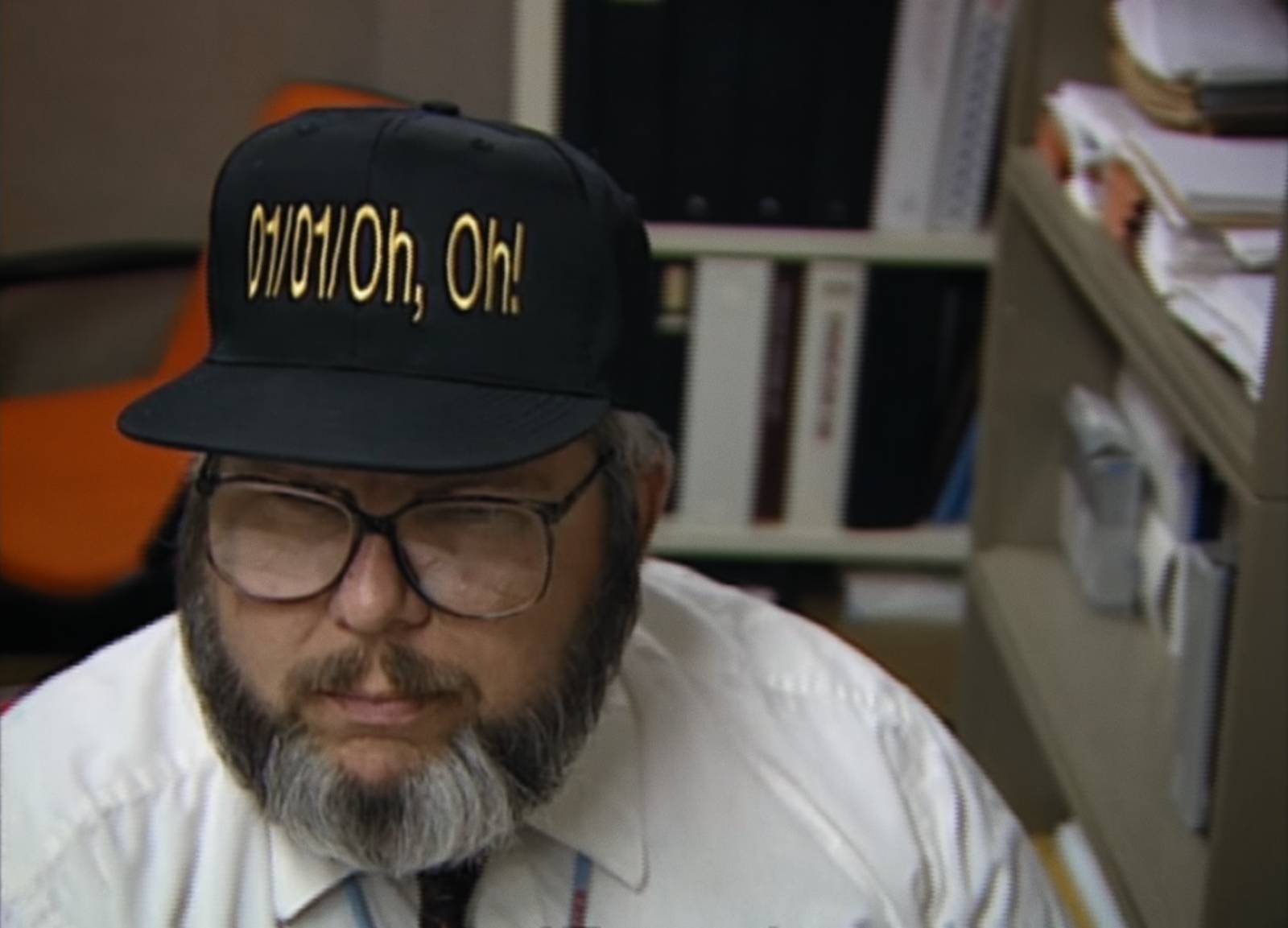We all felt doomsday looming over us when COVID-19 spread rapidly in March 2020. HBO’s all-archival documentary Time Bomb Y2K reminds us that, pre-pandemic, the world last witnessed this level of mass hysteria in the late 1990s (even though the 2003 SARS outbreak was more directly related). In the years preceding 2000 computer engineers realized a mass-scale glitch within electronic systems would incorrectly update the year from 1999 to 1900 as the new millennium began because most computer systems only store the last two digits of a year when recording calendar data. Soon theories about how this would lead to global information systems collapsing like wildfire. Hysteria ensued, prompting businesses to go berserk over tackling this problem and civilians to panic as they sought approaches to survive.
Co-directed by debut directors Brian Becker and Marley McDonald, and executive-produced by Penny Lane, Time Bomb Y2K is a reminder to not rely too much on technology. Though it’s easy for many of us to take these tools for granted as we advance our lives in the digital age, this often comes at the cost of losing touch with one’s sense of modern humanity and physical reality. “We will turn it back into the stone age eventually,” a luddite suggests at the beginning of the film when considering the impact of Y2K as they rely on primitive technological methods––creating wooden and plastic survival-kit items––in the wake of the disaster.
While the film does not have a protagonist to follow, it has people representing entities in this dilemma. For example: among other politicians, John “Y2K Czar” Koskinen constitutes the population’s leaders. News pundits (e.g. Brian Williams) symbolize the media providing reductive-yet-efficient reports to the undisclosed public. Finally, Peter De Jager is an ambassador for computer scientists as he relays the malfunction’s origins and his perspective on “the truth.” As society prepares for the world’s end, odd-looking (yet temporally apt) animated sequences glide in the electric circuit while scenes from cyberpunk flicks keep viewers in their seats as they head in the direction of the new millennium.
Time Bomb presents tremendous existential commentary from its featured angles but spends too little time on the ordinary individuals who compose the societal ethos. By glossing over the specificities of Y2K’s cultural, societal, and technological effects, Time Bomb Y2K fails to thoroughly analyze this phenomenon’s practical impact on the lives of ordinary citizens. The home videos shown during the climactic New Year’s Eve countdown provide a genuine glimpse into the average person’s lived experience, but otherwise their appearances are primarily through the lens of media interaction. In such scenes characters are either asked on-the-spot questions about the future or are featured in marquee telecast segments. These portrayals are accordingly, unfortunately reductive, but given the archival nature of the film, lack of analysis is understandable from the minimal availability of materials shot by non-professional media makers.
McDonald and Maya Mumma’s editing parses this pandemonium’s ridiculous yet reasonably suspenseful, satirical, poignant sentiments gleaned from news media and fictional programs into a nostalgic study of searching for solace amidst unrest. The film also demonstrates what we should potentially expect during future catastrophes––particularly those met with noted skepticism. In full view Becker and McDonald’s work incisively addresses what it means to be informed. Despite their unintentional mischaracterization of individuals noted earlier, the directors successfully unveil how mass-communication tools transmit our knowledge and judgment about various topics and scenarios. And they remain objective regarding which side to gravitate towards while respectfully letting engineers, anchors, and public officials explain their own rationales.
Time Bomb Y2K premiered at True/False 2023.

